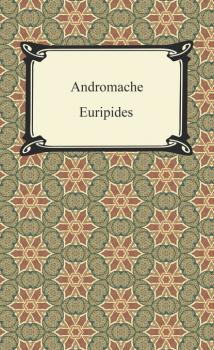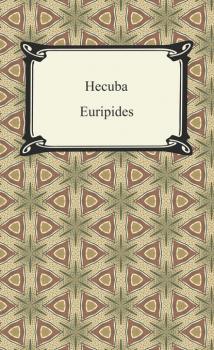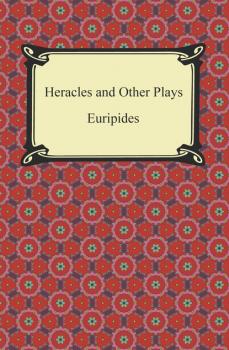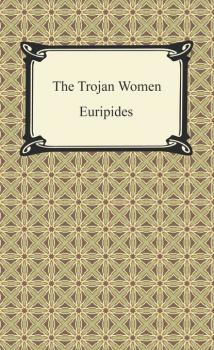ТОП просматриваемых книг сайта:
Античная литература
Различные книги в жанре Античная литература, доступные для чтения и скачиванияАннотация
"King Lear" is, in its picture of the tragic effect of human weakness and human cruelty, the most overpowering of the works of Shakespeare. It was written about 1605, in the middle of that period of his activity when he was interested, for whatever reason, in portraying the suffering and disaster that are entailed by defects of character, and the terrible cost at which such defects are purged away; and not even «Hamlet» displays these things so irresistibly. The germ of the story is found in the folk-lore of many ages and countries. Attached to the name of Lear, the legend assumed pseudo-historical form with Geoffrey of Monmouth in the twelfth century, was handed down through the long line of Latin and English chroniclers, appeared in collections of tales, found a place in Spenser’s «Faerie Queene,» and was dramatized by an anonymous playwright about ten years before the date of Shakespeare’s drama. To Shakespeare himself is due the tragic catastrophe which takes the place of the traditional fortunate ending, according to which the French forces were victorious, and Lear was restored to his kingdom. He first makes Lear go mad; invents the banishment of Kent and his subsequent disguise; creates the Fool; and, finally, connects with Lear the whole story of Gloucester and his sons.
Аннотация
Along with Sophocles and Euripides, Aristophanes is considered one of the three great Greek playwrights. Only eleven of his nearly forty plays survive in their entirety to this day. Of his extant works Aristophanes's «Lysistrata» is considered one of his finest and one of the truly great comedies from classical antiquity. Central to the work is the vow by the women of Greece to withhold sex from their husbands until they end the brutal war between Athens and Sparta. A hilarious and decisively anti-war comedic drama, «Lysistrata» stands as one of the most important works from classical antiquity.
Аннотация
Euripides (480 BC-406 BC) is revered as one of the three great tragedians of classical Athens, along with Aeschylus and Sophocles, and produced the largest body of extant work by any ancient playwright. He is considered to be the most modern of the three, and his works laid the foundation for Western theatre. Euripides turned to playwriting at a young age, achieving his first victory in the dramatic competitions of the Athenian City Dionysia in 441 b.c.e. He would be awarded this honor three more times in his life, and once more posthumously. Written about ten years after the Trojan War, «Andromache» may be a bitter attack on the Trojan national character. Andromache has been given as a slave and concubine to Neoptolemus, son of Achilles, and incurs the wrath of his barren wife, Hermoine, when she becomes pregnant. The plot illustrates a sophistry, cowardice and violence in the Spartans.
Аннотация
One of the last plays written by Shakespeare, «Henry VIII» is one of his finest historical dramas. Focusing on the life and times of Henry VIII, one of England's most dynamic rulers, the play examines and dramatizes monarchical life of 16th century England. The plot surrounds the events of King Henry VIII's annulment of his marriage to Katherine of Aragon and engagement to Ann Boleyn. The play portrays the suppression of the protestant reformation and the split of the Anglican and Catholic churches with great valor. In Shakespeare's «Henry VIII», religious power and political desire merge, resulting in a splendid historical tale.
Аннотация
William Shakespeare's «King Richard III» is one of the playwright's classic English historical dramas. It the story of Richard's murderous and deceitful plans to ascend to the thrown. A classic and popular play for performance, «King Richard III» is one of Shakespeare's great historical dramas.
Аннотация
Euripides turned to playwriting at a young age, achieving his first victory in the dramatic competitions of the Athenian City Dionysia in 441 b.c.e. He would be awarded this honor three more times in his life, and once more posthumously. His works are characterized by their moral ambiguity, plots of intrigue, and often a separate character (usually a deity) who introduces the play with an explanatory prologue. «Hecuba» was written around 424 b.c.e., and is considered to be one of Euripides' most bleak works. In the aftermath of the Trojan War, Hecuba, the wife of Trojan King Priam, finds herself in a state of utter desolation. Her husband and sons have been killed, and her daughters either slain or given as concubines to Greek kings, and she herself has been given to the hated Odysseus. From this beautifully penned story of destruction, loss, revenge, and the consequences of war has risen one of the most tragic figures in classical literature.
Аннотация
Euripides, along was Sophocles and Aeschylus, is responsible for the great rise of Greek tragedy. It was in the 5th Century BC, during the height of Greece's cultural bloom, that Euripides lived and worked. Of his roughly ninety-two plays, only seventeen tragedies survive. Both ridiculed and lauded during his life, Euripides now stands as an innovator of the Greek drama. Here, in «Heracles and Other Plays», we witness Euripides at the heights of his dramatic power. «Heracles» dramatizes the story of the great Greek hero and his maddened desire to murder his wife and children. Saved by the graces of his friendship with Theseus, «Heracles» examines family, heroism, and violence in a masterful way. «Iphigenia Among the Taurians» is a thrilling tale set on the Black Sea which examines Greek and Barbarian cultures, «Ion» tracks the orphan Ion through a web of betrayal, revenge, and reconciliation. «Helen» picks up after the fall of Troy and liberally rewrites the standard myth of Helen, and lastly, «The Cyclops» expertly dramatizes the famed episode in Homer's «Odyssey». For the lover of drama and the ancient world, this collection is not to be missed—Euripides is seen here in all of his valor and brilliance.
Аннотация
Euripides (480 BC-406 BC) is revered as one of the three great tragedians of classical Athens, along with Aeschylus and Sophocles, and produced the largest body of extant work by any ancient playwright. He is considered to be the most modern of the three, and his works laid the foundation for Western theatre. «Ion» interprets the legend of the orphan Ion, who was conceived from the rape of Creusa by the god Apollo. Creusa is determined to keep the rape secret, and leaves the baby for dead. The baby is rescued by Hermes, and raised by a Pythian Priestess in Delphi. Many years later, when Creusa and her husband Xuthus visit the oracles at Delphi, the mother and son are reunited under false pretenses. The ensuing story of betrayal, revenge and reconciliation exemplifies Euripides' clever ability to question the roles and fallibility of the gods in an emotional and beautifully written tale.
Аннотация
Though little is known for certain of his early life, Euripides was probably born around 460 b.c.e. to the farmer Mnesarchus and his wife Clito, and his studious nature quickly led him to a literary life in Athens. His work sticks out from that of his contemporaries for his attention to the political and social problems around him, although he never held public office. His plays are often ironic, pessimistic, and display radical rejection of classical decorum and rules. «The Trojan Women» is one of Euripides' anti-war plays, set in Troy just after it has been captured by the Greeks in a bitter, ten-year war. The play is not particularly suspenseful, but instead it relies on passages of lyric lamentation in the form of songs by Hecuba and other women who face cruel servitude in Greece. It is a powerful tragedy that emphasizes the sufferings of the innocent victims of war.
Аннотация
"Othello" is one of Shakespeare's finest dramas and one of the greatest tragedies ever written. It is the story of its title character, Othello, a Moor general who draws the ire of Iago, his ensign, when he passes him over for a promotion. Othello also makes an enemy of Roderigo, a wealthy gentleman, when he marries his love interest, Desdemona. Iago conspires against Othello by making him believe that his wife has been unfaithful. This deception results in tragedy for all of those involved. «Othello», a tragedy of epic proportions, is one of Shakespeare's best.










